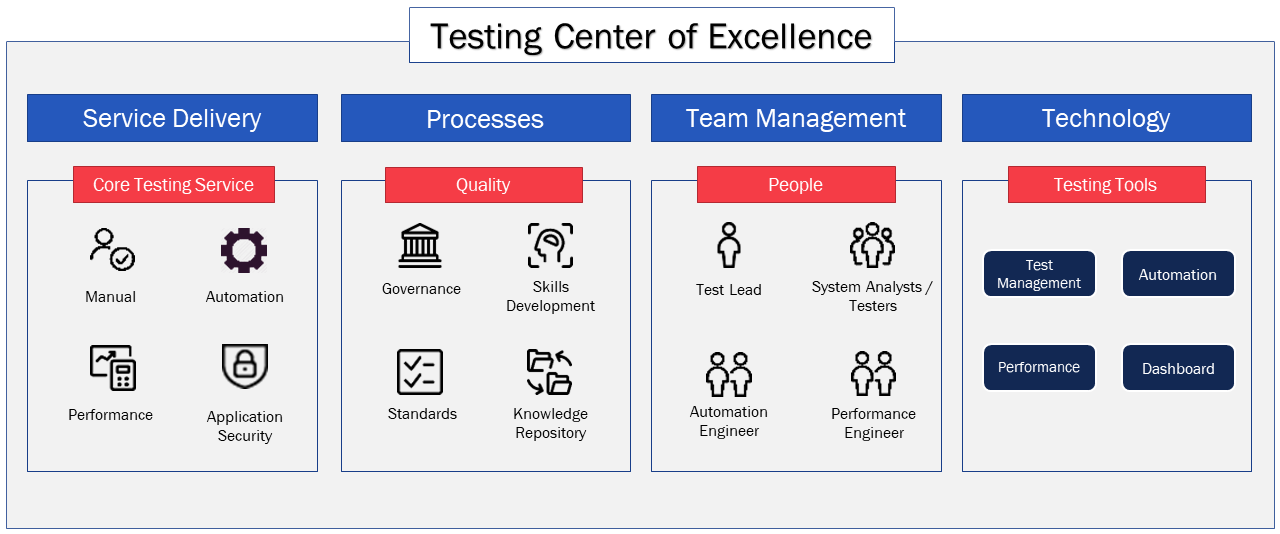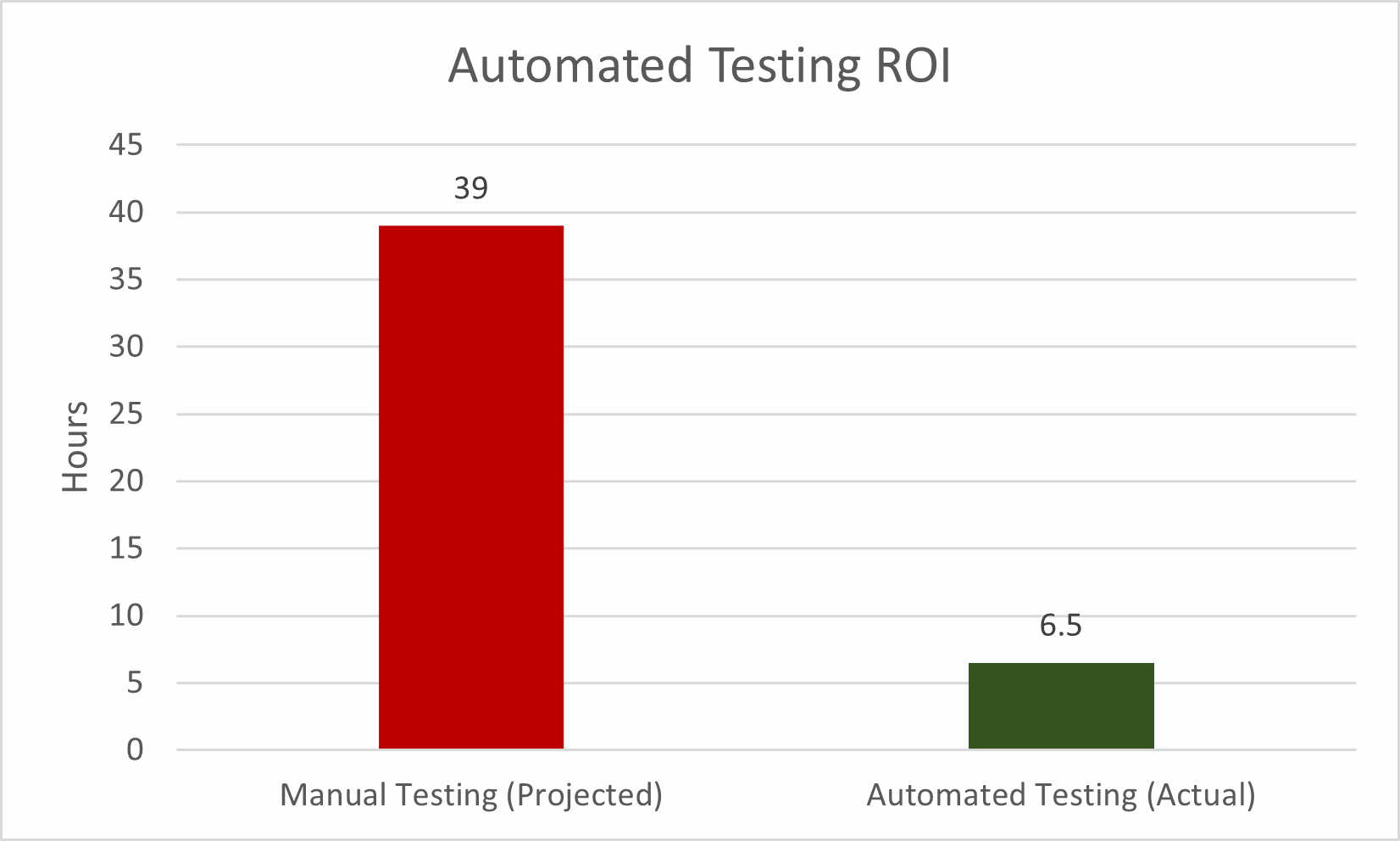How Can a Testing Center of Excellence Help Your Organization?
Breaking down the benefits behind this powerful test maturity improvement and transformation option
What is a Testing Center of Excellence?
A Testing Center of Excellence (TCoE) is a powerful test maturity improvement and transformation option. It serves as a centralized hub that contributes to the success of software development projects by ensuring high quality testing practices, optimizing resources, and fostering collaboration across teams. Establishing a TCoE can bring significant value to your team’s development process and may be beneficial to your company if:
- Your organization needs standardized processes to effectively manage testing efforts across application portfolios, projects, and stakeholders
- You want to optimize testing scope & cycles by testing more effectively
- You wish to maximize the return on your investment in testing resources to improve the way tools, resources, and processes are utilized
- If you want to monitor trends and use relevant KPIs to support fact-based strategic decision-making
- Utilizing a skilled and scalable resource pool is one of your key success factors

Testing Center of Excellence Chart
Testing Center of Excellence Capabilities
Test Strategy and Planning
Develop and define the overall testing strategy and planning for large scale programs and projects. This includes determining the testing scope, objectives, resources, and schedule.
Test Process Maturity Improvement
Continuously assess and improve testing processes. Implement best practices, methodologies, and tools to enhance the efficiency and effectiveness of testing activities.
Test Automation
Promote and implement test automation strategies. Manage automation resources and tools. Identify opportunities for automation, select appropriate tools, and guide teams in creating and maintaining automated test scripts.
Metrics and Reporting
Define and track key performance indicators (KPIs) for testing activities. Generate reports to communicate the status, progress, and effectiveness of testing efforts to stakeholders.
Collaboration and Communication
Facilitate effective communication and collaboration between testing teams, development teams, business stakeholders, and other relevant parties. Foster a culture of collaboration and knowledge sharing.
Governance and Compliance
Establish and enforce testing standards, policies, and procedures. Ensure that testing activities comply with industry regulations and organizational standards.
Defect Management
Implement processes for tracking, prioritizing, managing, and defect resolution. Work with development teams to ensure timely resolution of identified issues. Work with production support teams to minimize production outages.
Test Data Management
Oversee the creation and management of test data integrity to support testing activities. Ensure that test data is realistic, representative, and covers various scenarios.
Performance Testing
Provide expertise in performance testing, including load testing, stress testing, and scalability testing. Drive efforts to meet applications and systems performance requirements.
Client Case Study
A client of ours, a major company in the energy sector headquartered in the United States, saw the duration of their test cycles as a major challenge. Business users were often spending too much time testing. During the initial phase of the engagement, some of the things we heard from various team members were:
- “Inconsistencies in testing approach”
- “Don’t know what’s not being tested”
- “No metrics to measure quality”
TTC Global was engaged to help lead a change in the way the organization delivered quality software. Working closely with key stakeholders, TTC helped set up a long-term vision and strategy that would lead to a testing transformation. Some of the milestones achieved by our client include:
- Having a standardized test management and automated testing tool
- Centralized repository of reusable tests leading to efficient test cycles
- Shared testing resources offered by TCoE to establish consistent standards and processes across all projects
- Periodic maturity assessment performed to ensure the organization continues to make improvements
Recently, 100% of regression tests for a web-based application were automated. The tests are now run weekly as part of regular operations. The figure below indicates the significant amount of manual testing effort saved by leveraging the capabilities of the TCoE.

Automated Testing ROI Graph
By integrating various capabilities, a TCoE aims to improve the overall quality of software development, reduce testing costs, and enhance the speed and efficiency of the testing process within an organization. TTC Global is committed to establishing capabilities that are specific to the organization's needs.




